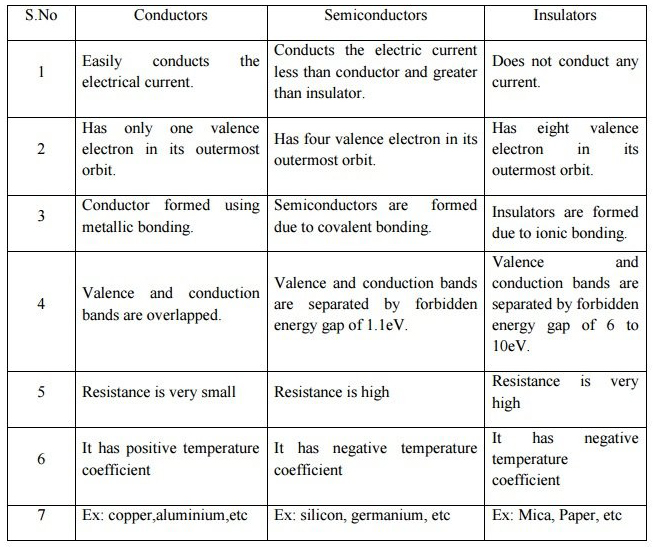Indian Economy
Semiconductor Shortage
- 03 Jan 2022
- 6 min read
For Prelims: Conductors, Semiconductors, Insulators, use of semiconductors, examples of semiconductors.
For Mains: Reason for the semiconductor crisis, It's impact and possible solutions.
Why in News
Recently, there has been an abrupt and cascading shortage of semiconductors worldwide.
Key Points
- About Semiconductors:
- Semiconductors are materials which have a conductivity between conductors (generally metals) and nonconductors or insulators (such as most ceramics). Semiconductors can be pure elements, such as silicon or germanium, or compounds such as gallium arsenide or cadmium selenide.
- Conductivity is the measure of the ease at which an electric charge or heat can pass through a material.
- They are also known as integrated circuits or more commonly just chips, they may be the tiniest yet most exacting product ever manufactured on a global scale.

- It's an electric circuit with many components such as transistors and wiring formed on a semiconductor wafer. An electronic device comprising numerous of these components is called Integrated Circuit (IC), and can be found in electronic devices such as computers, smartphones, appliances, gaming hardware and medical equipment.
- These devices find widespread use in almost all industries, especially in the automobile industry.
- Electronic parts and components today account for 40% of the cost of a new internal combustion engine car, up from less than 20% two decades ago.
- Semiconductor Chips account for a bulk of this increase.
- Semiconductors are materials which have a conductivity between conductors (generally metals) and nonconductors or insulators (such as most ceramics). Semiconductors can be pure elements, such as silicon or germanium, or compounds such as gallium arsenide or cadmium selenide.
- Reasons for the Shortage:
- Work from Home due to Covid: Lockdowns increased the growth in sales of laptops to the highest in a decade.
- Home networking gear, webcams and monitors were snapped up as office work moved out of the office, and laptops were in demand for a while as schools shut.
- False Forecasts: Automakers that cut back drastically early in the pandemic underestimated how quickly car sales would rebound. They rushed to re-up orders late in 2020, only to get turned away because chipmakers were stretched supplying computing and smartphone giants.
- Stockpiling: Computer makers began warning about tight supplies early in 2020. Then around the middle of that year, Huawei Technologies Co. — the Chinese smartphone maker that also dominates the global market for 5G networking gear — began building up inventory to ensure it could survive US sanctions that were set to cut it off from its primary suppliers.
- Other companies followed suit, hoping to grab share from Huawei, and China’s chip imports climbed to almost USD 380 billion in 2020, up from about USD 330 billion the previous year.
- Disasters: Production plants in the US were affected by the cold and in japan by wildfire.
- Difficult Production: Manufacturing advanced logic chips requires extraordinary precision, along with huge long-term bets in a field subject to rapid change.
- Plants cost billions of dollars to build and equip, and they have to run flat-out 24/7 to recoup the investment.
- Work from Home due to Covid: Lockdowns increased the growth in sales of laptops to the highest in a decade.
- Impact:
- Countless industries have been affected as global demand for semiconductor chips continues to outstrip supply.
- Chip shortages are expected to wipe out USD 210 billion of sales for carmakers this year, with production of 7.7 million vehicles lost.
- The semiconductor shortage will severely disrupt the supply chain and will constrain the production of many electronic equipment types.
- The chip shortage directly impacts consumers as prices of everyday appliances and electronic goods — from TV to smartphones — have increased due to the global supply chain disruption.
Way Forward
- Emerging technologies, especially, Internet of Things, artificial intelligence, augmented and extended reality and blockchain are gaining prominence across industries. With these applications gaining traction across sectors, the need for specialised sensors, integrated circuits, improved memory, and enhanced processors is increasing.
- India is finalising plans to manufacture semiconductor chips in a big way, as a part of its ‘Make in India’ initiative. The nation is offering more than USD 1 billion in cash to each semiconductor company that sets up manufacturing units in the country.
- Chips made locally will be designated as “trusted sources” and can be used in products ranging from CCTV cameras to 5G equipment.
- In December 2021, India invited an “expression of interest” from chipmakers for setting up fabrication units in the country or for the acquisition of such manufacturing units.
- This is all being done to achieve self-sufficiency in the manufacturing of semiconductors, to ensure better control over data security and prevent countries in the world from being held to ransom by specific members of the existing semiconductor supply chain.
- It is clear that semiconductors are changing the game in our modern, fast-moving world. Therefore India should give semiconductors the status of “critical infrastructure'' in most countries, in the near future.






